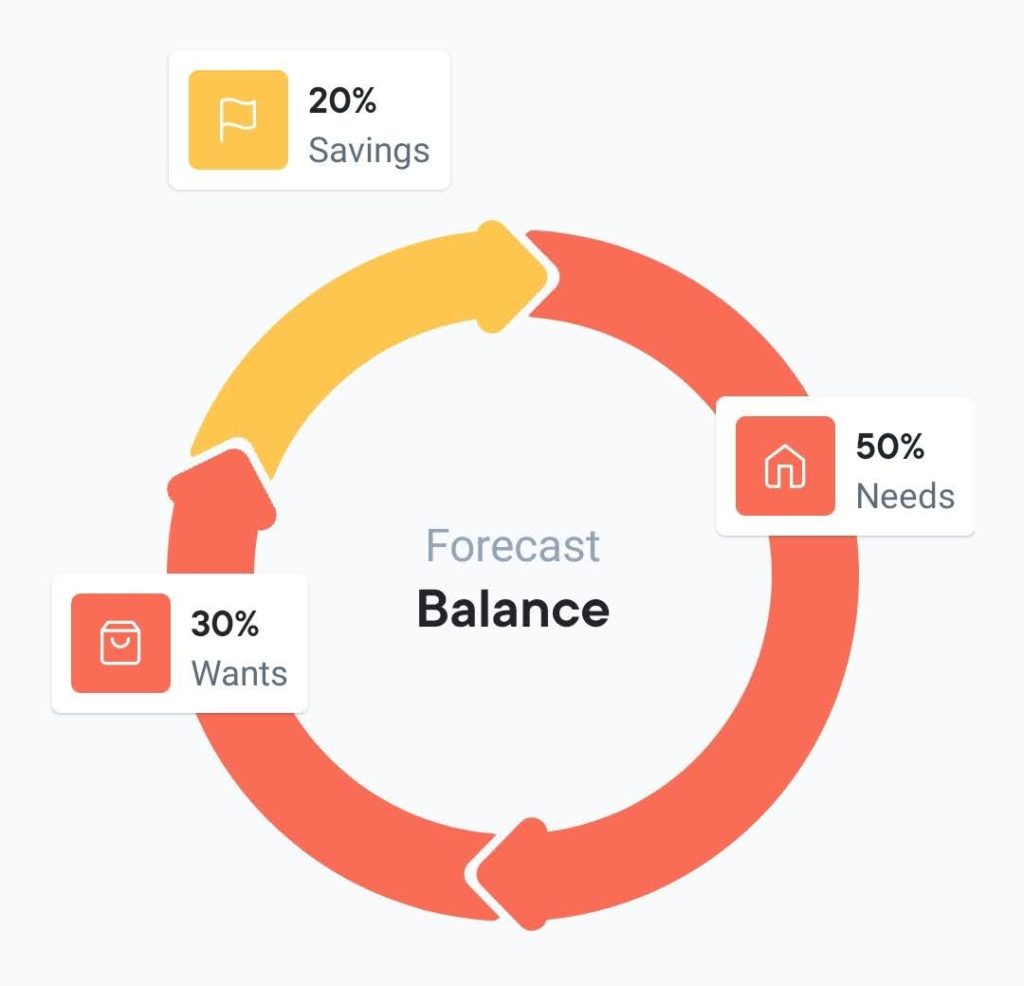
Trying to get your monthly debt spend down can be hard.
Getting our spending into some sort of order is essential but most of us hate budgeting…
There is however a quick and easy way to bring your spending under control and it’s called the 50/30/20 rule.
It’s really simple. No budget forms to fill out.
Importantly, 50/30/20 doesn’t stop you enjoying life.
Making sure you don’t spend more than 50% of your money on life’s absolute essentials, means you’re halfway there.
Next try and make sure you’re spending around 20% of your income on financial commitments. Paying off debt and saving.
After this around 30p in every £1 is yours to spend on whatever you want.
Elizabeth Warren, a Senator from Massachusetts, was named by Time magazine as one of the 100 Most Influential People in the World. She came up with the 50/30/20 rule.
In summary, after paying tax you split what you have left into the three different categories:
- Essentials (needs: 50%)
- Flexible spending (wants: 30%)
- Saving and borrowing (commitments: 20%)
Four simple steps…
The first step is to work out your income, after tax and other deductions.
For most people that’s straightforward. The self-employed might need to guesstimate earnings. HMRC have created a calculator to help you work out your tax bill.
Secondly allocate 50% of what’s left to living expenses. The essentials. Including housekeeping, rent, bills and transport. These are your ‘needs’. Absolute needs. Survival stuff. Even if you feel you need Netflix, a curry night or a holiday, these are not included in this category.
Thirdly, put 20p from every £1 aside to help you meet your financial goals. Too often that means paying back loans. You’ll probably start off spending most of this money paying off debt. However, over time you should put more money away for a rainy day fund. Eventually, you can build a nest egg.
The fourth stage is to assign 30% of your money to ‘wants’. These are everything you buy, but don’t necessarily need. Basically, all those little extras you spend money on that make life more enjoyable and entertaining.
Doing the maths
For example, your monthly income is £1,000.
Using the 50-30-20 rule, you should be spending no more than £500 on monthly needs. If the housekeeping bill is £350, you’ve only got £150 left for bills and transport. Remember, Housing Benefit is included in your income.
50% is a target. Of course, if you’re renting privately, the cost of your needs may be higher. Furthermore, if you’re on a lower income and paying your gas and electricity on prepaid meters, your bills are likely to be higher.
£200 of the £1,000 should be used to pay down on debt, save for an emergency and build a nest egg. If you aren’t allocating 20% of your income for these purposes, you may need to cut back on wants.
After needs and plans you’ll be left with £300 a month for your ‘wants’. To clarify, that’s your going out budget. And all the things you go shopping for but aren’t required to meet your basic needs.
Following this simple 4-step approach will get on on the right track. Simple is not always easy of course.
Making a start is the key thing and then take baby steps from then on.
By the way, sometimes there will be times when 50-30-20 is not possible and that’s OK. For example after having had a baby, or losing a job. These tend to be temporary situations following a big change in your circumstances.
The beauty of the 50-30-20 rule is that it’s a super-simple rule-of-thumb to help you get back on track.
Good luck!
